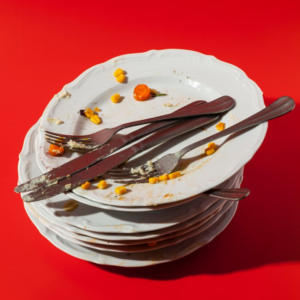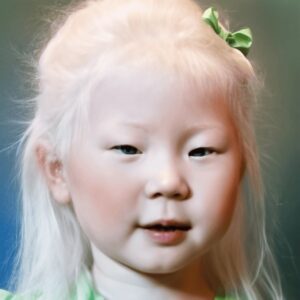After a father passed away, the will he left behind pitted his two daughters, Helen and Julia, against each other: one inherited the house where they grew up, while the other received a single dirty dish.
John was a loving father to two girls. Helen, the eldest, was the apple of his eye, but his youngest, Julia, showed a strong likeness to his deceased wife. Despite his feelings for both females, John preferred her because of their similarities.
Helen was already in her teens when Julia was born. John and his wife had almost given up hope of having another child, so Julia’s birth seemed like a miracle. Because of her miracle status, they showered Julia with additional love and care, leaving Helen feeling ignored and sidelined.
Helen turned 18, and disaster struck. Her mother went away, leaving John to raise two children on his own. Struggling to make ends meet, he told Helen to take a job as a dishwasher to help with the family’s expenses.
Helen, annoyed and outraged, disliked the concept. “Why do I need to work? “Everyone else my age goes to college,” she said one day.
John’s reply was firm. “You’re 18 now, Helen. It’s time you learned how to be useful.”
“Useful to you and Julia, you mean,” Helen shot back before storming off.

For illustrative purpose only
This became a frequent dispute until Helen consented to accept the position. But her animosity of Julia only intensified. While Helen worked long hours, Julia, a carefree adolescent, spent her days partying. This caused a schism between the sisters, which only grew over time.
Helen grew and let go of most of her jealousy as she progressed from dishwasher to kitchen assistant and, finally, cook. She attempted to assist Julia, pushing her to be more responsible and to plan for her future. But Julia dismissed Helen’s suggestions, perceiving her as bitter and controlling. Their father, John, continued to indulge Julia, leaving Helen with few resources.
Then John di:ed, and everything changed. His will was read, and it astounded both sisters. Julia received the family house, whereas Helen received a single filthy dish. Helen pondered appealing the will but opted against it, believing Julia needed the house more than she did.
Instead, Helen offered her sister counsel. “Julia, you should sell your house and utilize the proceeds for education. You have the opportunity to do something with your life.”
But Julia was not interested. “Why are you constantly meddling? Daddy left me the home because he believed I deserved it more than you. I do not need your counsel.”
Helen felt saddened, but she chose to let Julia be. Julia quickly sold the property and went to a high-end apartment in the city. Helen said to herself, “Good luck, sister,” when she received the news.
Months passed, and Helen focused on creating her own life. One day, while cleaning her apartment, she came across the dish her father had left her. Instead of throwing it away, she cleaned it and put it on a shelf, thinking she could use it someday.

For illustrative purpose only
That day came, and she hosted a small gathering of friends. One of her visitors, a historian, noticed the meal and examined it more closely. “Where did you get this?” he said, his tone filled with wonder.
Helen clarified that it had been her father’s. The historian’s eyes widened. “This is no ordinary dish. It’s a Chinese dynasty item that might be quite valuable.”
Helen took the dish to an antique dealer the next day, who confirmed its value: $2 million. Helen sold the dish to a collector and used the proceeds to start her own restaurant, which quickly prospered.
Meanwhile, Julia’s life went a another direction. She spent the money from selling the house on parties and foolish items. Within months, her money had run out, and she found herself homeless.
Desperate and hungry, Julia went to a well-known restaurant that served food to the homeless. She had heard that the owner was particularly friendly and kind, so she arrived early, hoping for a supper. When she got to the front of the queue, she was astounded to see that the owner was none other than her sister, Helen.
Despite everything, Helen welcomed Julia with open arms, taking her home, cleaning her up, and even offering her a job at one of her restaurants. Julia accepted the help, grateful for her sister’s kindness, and never looked down on her again.




